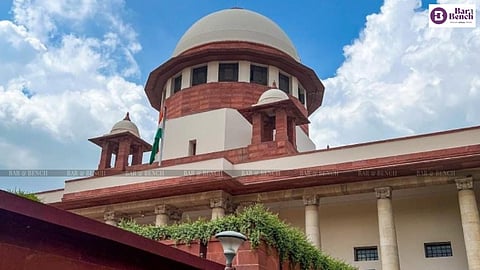
- Latest Legal News
- News
- Dealstreet
- Viewpoint
- Columns
- Interviews
- Law School
- Legal Jobs
- हिंदी
- ಕನ್ನಡ

The Supreme Court on Thursday outlined the procedural guidelines to be adhered to by the government or its instrumentalities while acquiring land and depriving a citizen of his right to property under Article 300A of the Constitution [Kolkata Municipal Corporation and anr vs Bimal Kumar Shah and ors].